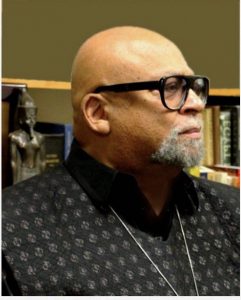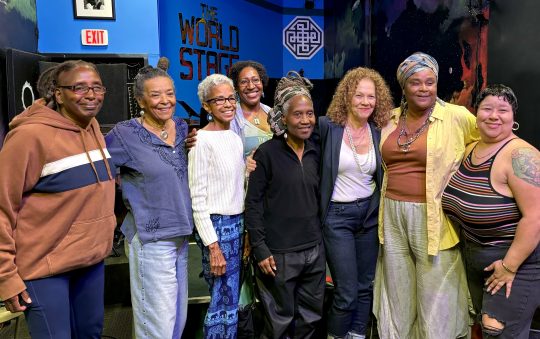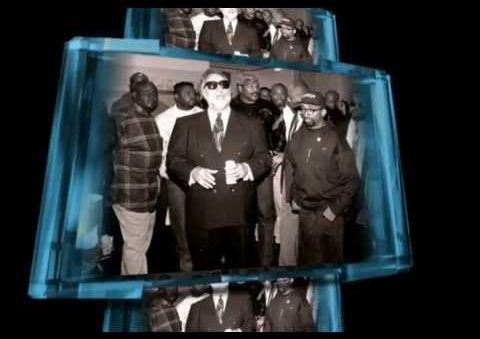
In the words our honored ancestors used to describe our “rising in radiance,” the world encompassing embrace and celebration of Kwanzaa by African peoples around the world is indeed, “wonderful to witness and beautiful to behold.”
Surely, the celebration of the holiday and the practice of its principles by African peoples on every continent throughout the world African community are both a representation and reaffirmation of the beauty, value, indispensable principles and promise of a lived Pan-Africanism, a sharing of work and struggle and the abundant good that comes from these.
Indeed, Kwanzaa, with its core principles, the Nguzo Saba, unite African peoples, us, in ways no other holiday and shared principles do. It brings us together across land and sea from various continents and countries, from various religious traditions, political persuasions, classes, ages and generations on the common ground of our Africanness, our culture and peoplehood, in all its historical and current distinctiveness and diversity.
And Kwanzaa and the Nguzo Saba call and commit us, as African peoples, to constantly seek and build on common ground and practice culturally and ethically grounded ways to live our lives, do our work and wage our liberating and uplifting struggles for an inclusive and shared good in the world.
As we celebrate Kwanzaa, then, in this special time of remembrance, reflection, rejoicing and recommitment, it is good to consider how and why Kwanzaa has been embraced by Africans throughout the global African community. For it speaks to revealing and recovering the central and sustaining meaning of the holiday itself and the principles that are the hub and hinge on which the holiday turns. Over the years it has been a recurring question by interviewers of whether or not, when I created Kwanzaa, I imagined it would be received and develop into such a world encompassing cultural practice.
And my consistent answer has been that I’m no prophet and therefore did not dare predict the future. But I believed that if I could conceive and create something of beauty, value and meaning, our people would embrace it and use it in ways that enriched and expanded their understanding and appreciation of themselves and contributed to our struggle to achieve a liberated and uplifted life in this country and the world.
Thus, Kwanzaa grows out of the lived and living experience of Black people, African people, out of the various ways we live our lives, do our work and wage our struggle to be ourselves, free ourselves, develop, flourish and come into the fullness of ourselves. It was the creative result of years of research and reflection, of sankofa retrieval and cultural reimagining and reconstruction, and of developing out of my philosophy, Kawaida, a holiday which would serve several important and interrelated functions.
It was created so that it would contribute to our ongoing freedom struggle; assist us in rightfully returning to our own history and culture; provide us a special time space to reinforce the bonds between us and meditate on the awesome meaning of being African in the world; and introduce and reaffirm the importance of African communitarian values, values that stress and strengthen family, community and culture.
And, as always, the core communitarian values I developed and introduced, especially through the celebration of Kwanzaa, are the Nguzo Saba, the Seven Principles, again, the hub and hinge on which the holiday turns and which provide a value system and an interrelated discipline of practices central to a liberated and uplifted life.
Those principles are: Umoja (unity); Kujichagulia (self-determination); Ujima (collective work and responsibility); Ujamaa (cooperative economics); Nia (purpose); Kuumba (creativity) and Imani (faith). And these principles are not only a focus of seasonal celebration and recounting, but also, a lived and living practice for all seasons and situations; from building family and community and doing our work in the world to waging struggle, protecting and preserving our rights, winning a just peace, and reconceiving and reconstructing this country and the world in shared-good and sustainable ways.
Kwanzaa, first, then, has grown and become a world encompassing holiday because of the profound, rich and reaffirming message and meaning it has for African peoples. It is a self-conscious celebration of ourselves, of our families, our communities and our culture in all its local, national and global diversity. Kwanzaa resonates with us because it is by us, ‘bout us, and for us. In this African centered celebration, we are at the center of it all, the source and subject of our own history and culture, self-conscious agents of our own lives and liberation.
Here in this special space called Kwanzaa, it is our own sacred narrative that we tell and teach, our own soulful songs of ourselves we sing and our own dances of our divine-image selves we design, dedicate and do. It is indeed a shared homage to our humanity as African peoples of the world, our particular, unique and equally valid and valuable way of being human in the world, a culture which at its most beautiful, affirms the sacredness and soulfulness of our people, that each life is a miracle given and to be remade, that each person is a poem constantly unfolding, and each heartbeat is drum-talk promising love in life, strength in struggle and happiness and fulfilment in the good and cooperative ways we work our will in the world.
Surely, Kwanzaa has also expanded and rooted itself in the world African community because it was conceived and constructed in struggle, consciously linked to the Black Freedom Movement, especially its Black Power phase, and became a central and sustained practice within it. Moreover, its principles, the Nguzo Saba, became a vital source of cultural grounding, political consciousness-raising, organizing, institution building and resistance.
Indeed, as I have stated before, one of the main reasons I created Kwanzaa was as a contribution to our righteous and relentless struggle to be ourselves and free ourselves, and for our organization and me, cultural grounding was and remains an indispensable weapon and way forward in this struggle, as Nana Haji Malcolm, Nana Haji Sekou Toure, Nana Amilcar Cabral and Kawaida taught.
Again, as I have stated previously, Kwanzaa was conceived, created and introduced as an act of freedom, an instrument of freedom, a celebration of freedom and a practice of freedom. It was/is an act of freedom, of self-determination and self-authorization, asking no permission, recognition or reaffirmation from the established order or others. It was/is engaged as an instrument of freedom, a means and method of cultivating consciousness and commitment to our people and struggle, teaching cultural resistance as an indispensable grounding for political resistance and offering an African alternative and liberating way forward in the world.
It was/is a celebration of freedom, a rightful and righteous raising up and rejoicing in our recaptured sense of the sacredness, soulfulness, and beauty of our Black selves. And it was/is the practice of freedom in embracing, embodying and practicing the Seven Principles in our daily lives, principles that engender and sustain liberated and liberating ways to understand and assert ourselves in the world.
Finally, Kwanzaa’s global expansion and embrace is due to the initial and ongoing work of the Organization Us as well as all the other Black conscious and committed organizations, families and celebrants of Kwanzaa to introduce and share it, and who were and remain vigilant and active in maintaining its integrity, beauty and expansive meaning. And of course, I give great praise and honor to our people throughout the world African community.
Indeed, although I created Kwanzaa and my organization Us was first to embrace and practice it, and we have been central to its continued development and global reach, it would not be the world encompassing pan-African holiday it is without our people. For it is our people, African people, who embraced Kwanzaa’s celebration and principles as a fundamental part of their lives, embedding them in the naming and nurturing of their children, projects and practices, and thus, making it a lived and living tradition of bringing and sharing good in the world.







